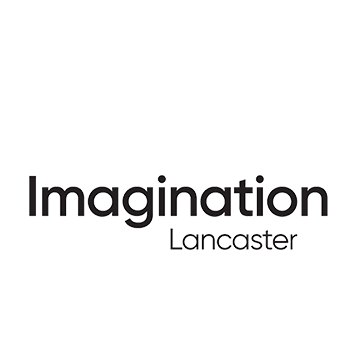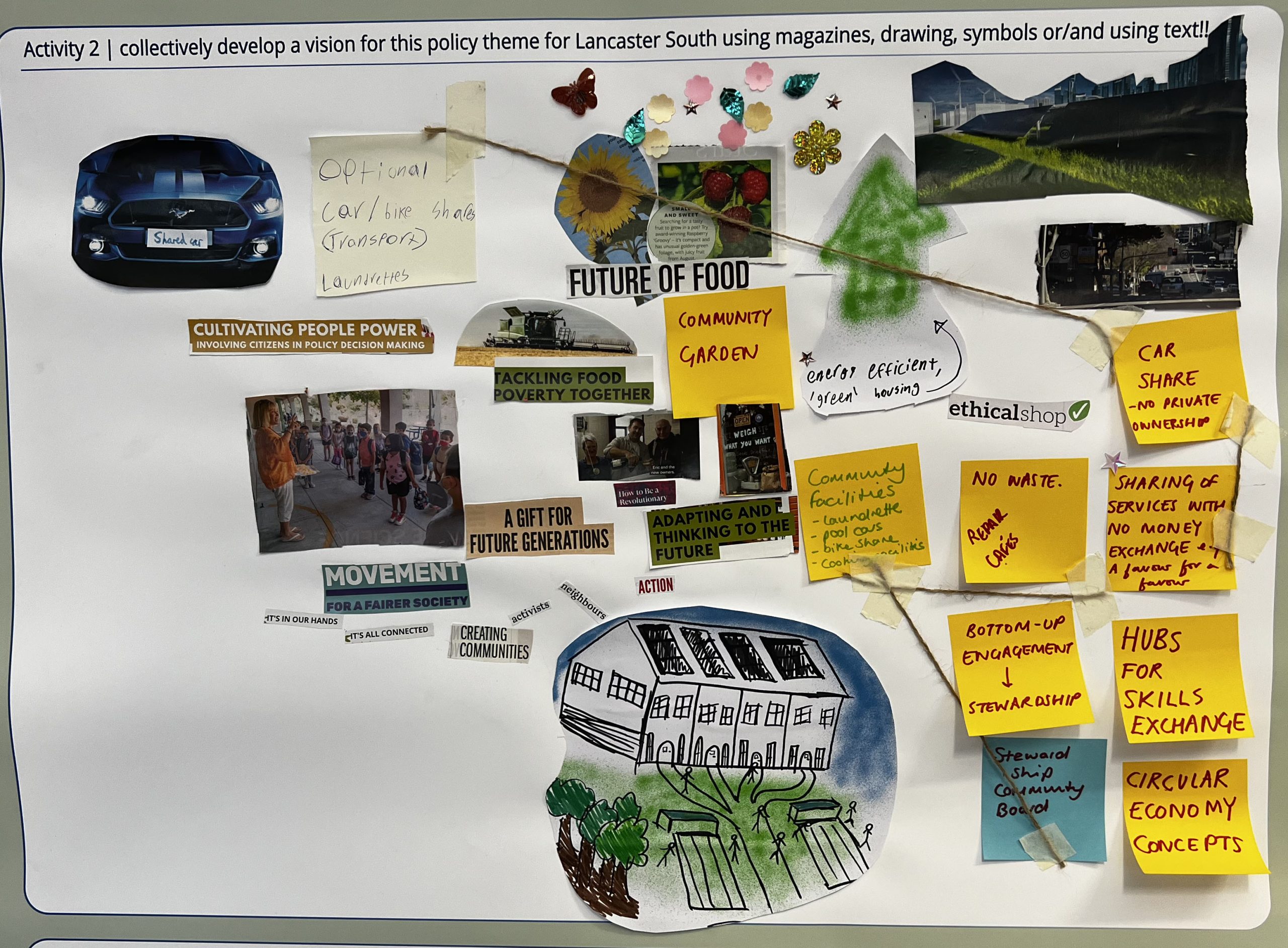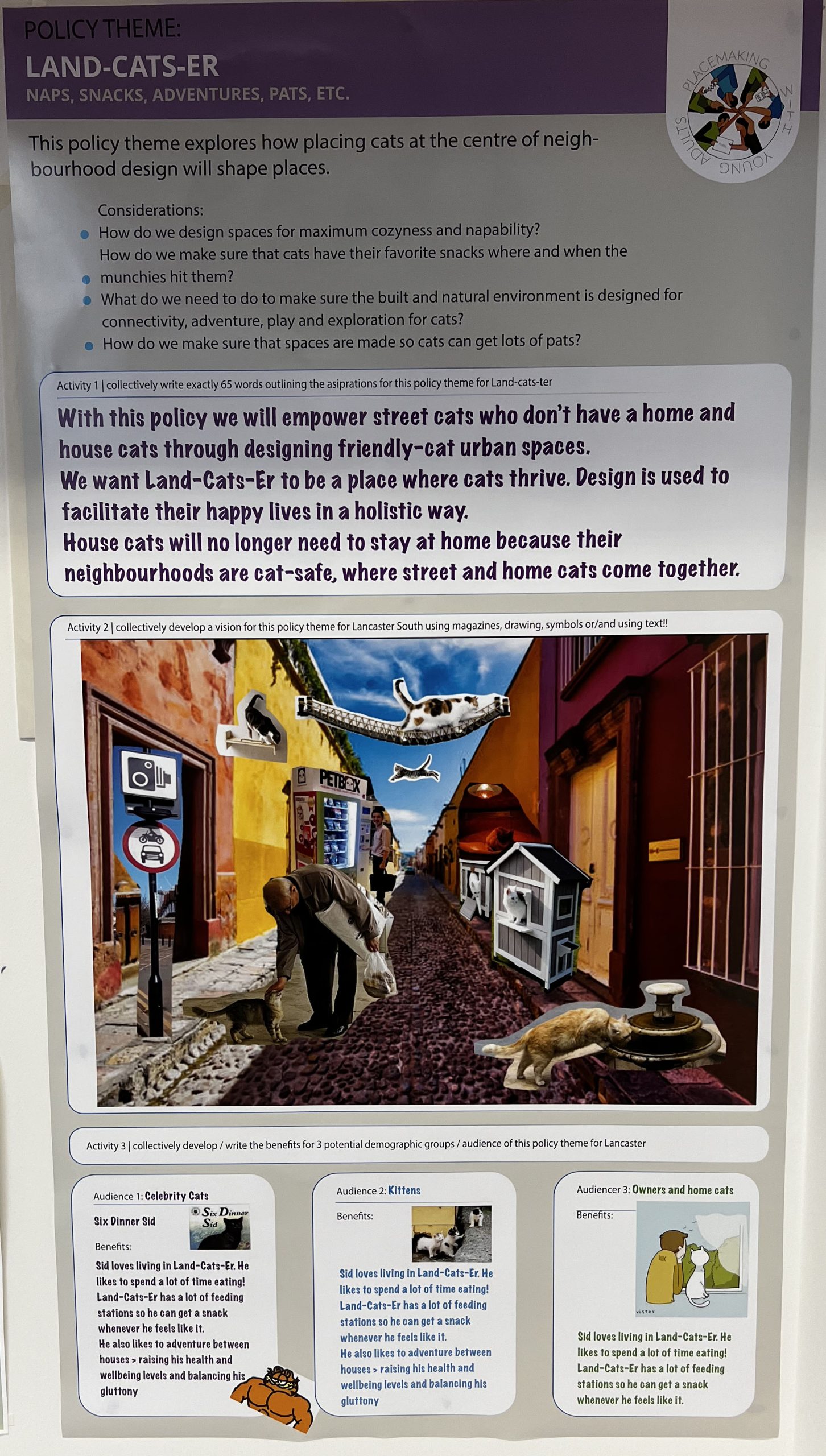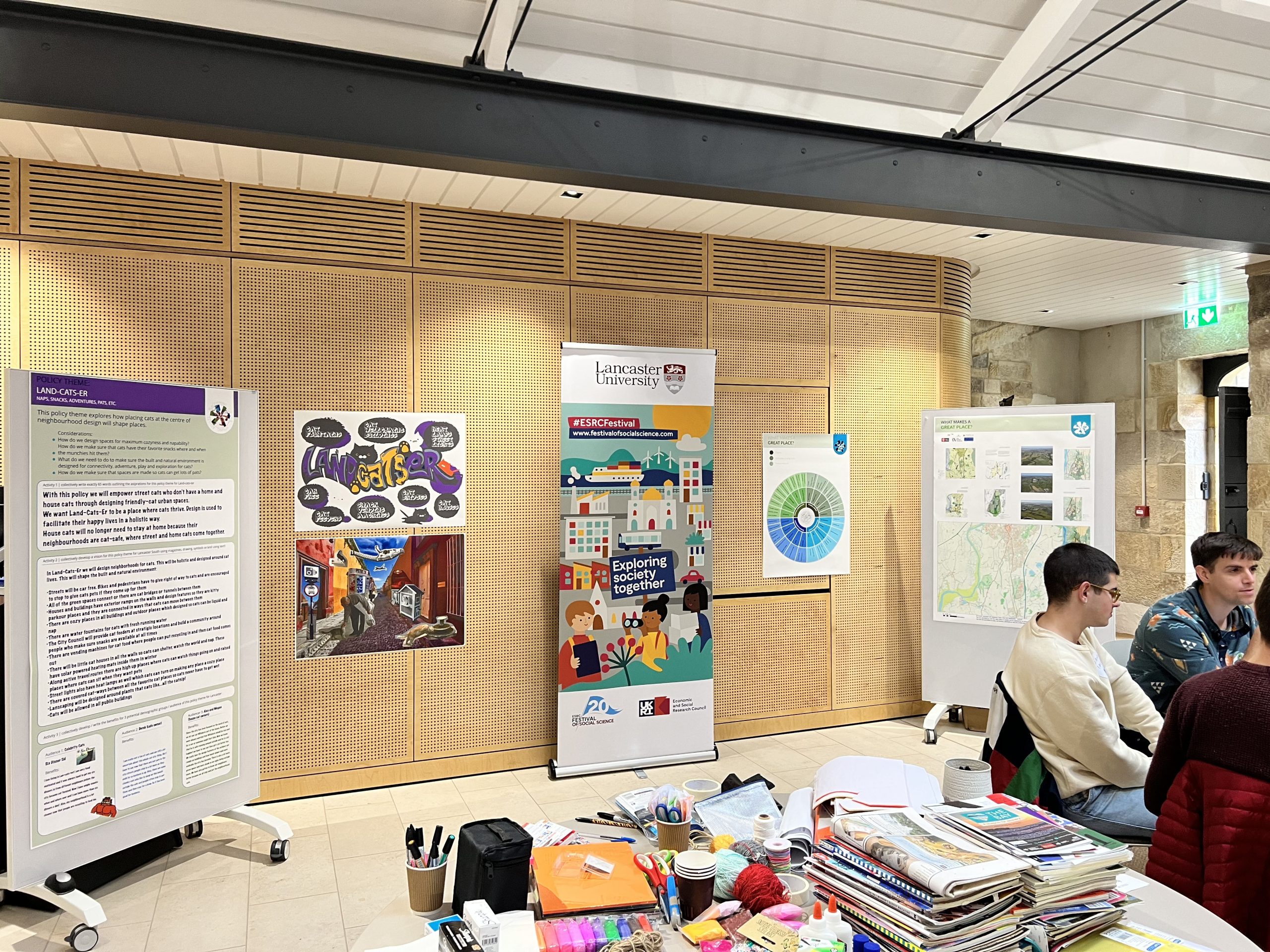I’m Rosie, a second year Geography undergraduate at Lancaster University. In this blog I write about my experience at the third of three Placemaking with Young Adults workshops which took place on 11th November 2022. I saw the workshop advertised in the university library and prior to it I had had little previous engagement with the wider Lancaster community beyond the university campus (I was nervous to say the least!). But, after convincing my friend to come too, we found the experience of exploring the visions of young people in their ambitions for the new plan for Lancaster District extremely fulfilling and I hope that I can convey what a great experience it was in this blog.
The workshop was run by a partnership between Lancaster University and Lancaster City Council, introducing city council officers to young people aged 18-30 years old to cooperate over the agenda for the development of Lancaster District. The policy themes explored during the day were: Affordable living; Connectivity and Sustainable Travel; Climate Focused New Development and Natural Environment, with these themes demonstrating the acknowledgment that local issues converge with global ones. I believe that these global issues, increasingly matter to the young people today. Discussing the local tangible measures to tackle these and additionally thinking about intangible aspects of place such as feelings of social cohesion and community agency, I felt fostered a great sense of positivity amongst all participants about the future of Lancaster.

The first activity included small groups collectively writing 65 words outlining the aspirations of each policy theme before presenting it to the room. This was harder than it first appeared to summarise our ideas in a clear and impactful way, choosing the most appropriate and captivating terminology. The second activity was my favourite! We were given a LOT of magazines, glue, coloured pens, and craft materials to develop a vision board for the policy theme and I instantly felt more at ease in this creative space. The activity facilitated the creation of a vision from individual and previous ideas and concepts to create something better as a group. The local authority policy makers were particularly helpful here as they added their knowledge of the practicalities and technicalities of planning policy, enabling us to see how our ideas would work in reality. Finally, the last activity involved considering the perspectives of three demographic groups regarding each policy to holistically think about who and how our visions would benefit people.
Some key aspirations that arose from each policy theme were:
Affordable Living: Value led and cooperative community living with community energy generation and housing built to high energy efficiency standards to reduce costs.
Connectivity and Sustainable travel: Reliable, frequent and inclusive sustainable travel with integrated accessible community spaces.
Climate Focused New Development: Infrastructure that considers emissions and minimises waste. Communities that are empowered to do more with less.
Natural Environment: Public awareness and actions towards an integrated symbiotic relationship between human needs and the needs of the natural environment.
Some noteworthy additional touches on the day also added something to the experience. We all received a tote bag and notebook embellished with a colourful Placemaking with Young Adults logo. There was also plenty of fruit, pastries, and cakes for us to munch on and somehow food always prompts conversation! So, these touches were a great way to break the ice.
As well as working with other young people I gained an insight into the minds and careers of policy makers working behind the façade of Lancaster’s built environment. Sociability, an important attribute of placemaking, was definitely galvanised, as our future visions arose from the shared values of a cooperative diverse community in such a way that the workshop became an important place itself. As I left the workshop, the vibrant and inclusive atmosphere left me with a sense of belonging to the community, and excitement that my new city believed in the potential of the collaboration of young people and policymakers. I felt positive about the inclusion of our ideas into the material future of space and resulting sense of place, for which generations to come would benefit from.
Author: Rosie Saxton. I am writing this piece as part of my work experience in Lancaster City Council Planning and Climate Change service, after securing this connection through meeting the team at the workshop. I am keen to pursue a career in planning or similar work which involves inclusive, progressive and climate change focused policy and design. In my spare time I enjoy reading, playing netball for Lancaster Environment Centre, and going on trips to the Lake district with my friends.






